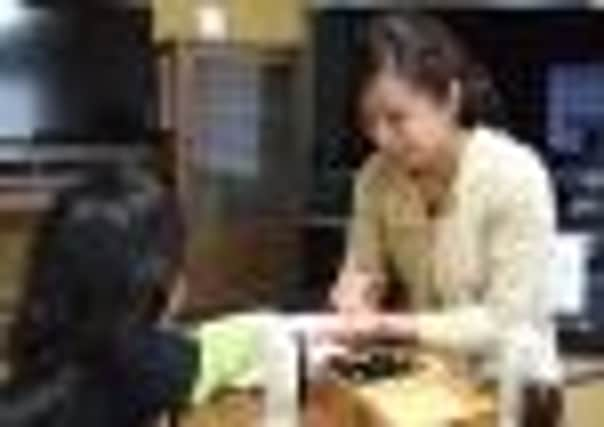INSPIRATIONS: Chichester woman helping tsunami victims in Japan


When massage therapist Mary Atkinson visits the area in April, this tree and forest will be the basis for a series of healing massage sessions she will be delivering to the city’s children. She has been invited by aromatherapist Takiko Ando who read Mary’s book Healing Touch For Children, which talks about how touch can provide comfort.
Takiko runs a charity called Cocoro, the Japanese word for mind. It aims to help heal emotional wounds through soothing massage and the therapeutic power of essential oils and works closely with social workers in the city to identify people who could benefit from the project.
Advertisement
Hide AdAdvertisement
Hide AdLast year the two women met at an event in London where Mary was giving a talk, and after seeking advice from Mary, they formed a strong bond which resulted in her being invited out to the city to help set up and deliver a positive touch for children programme in schools.


The project came about after Takiko started massaging mothers at a school and saw children wanting to get involved. She was using pine essential oil which took people back to their place of comfort – the forest – which helped people to start opening up. She realised how beneficial massage could be.
“People started talking for the first time and actually started smiling for the first time and sharing things they hadn’t shared before,” says Mary.
The project runs deeper than just providing a means for people to relax: out of this state comes the opportunity for people haunted by their experiences to talk about them and lift the burden of loss they have been carrying. Japanese culture is very reserved; people are encouraged to display stoicism rather than talk about grief and trauma, and following the tsunami this culture has resulted in serious mental health issues for many people.
Advertisement
Hide AdAdvertisement
Hide Ad“It’s important to understand the culture,” explains Mary. “They don’t tend to ask for help; people who have survived, the general sense is ‘we’ve survived, we are lucky’.


“They feel they have been given life and don’t want to be a burden to anybody. So they bottle it all up, they have not been sleeping and they have real trauma, recurring nightmares and they keep hearing the sound of the water and keep remembering the feeling and see pictures.
“They had to leave everything, the kids had to leave all their possessions and cuddly toys – everything – and just run. The school where I’m going all the teachers were killed: for the children all their security has gone.
“We tend to look at the buildings but don’t always think of the people suffering, particularly as they don’t talk about it.”
Advertisement
Hide AdAdvertisement
Hide AdFor Mary touch and massage is an international language that everyone, no matter what culture, can understand.


“You automatically reach out to touch somebody, it’s a natural thing to want to comfort someone through touch,” explains Mary. “And it definitely seems to help people talk more, they feel comforted, and feel somebody else has cared, they are not alone.”
For many people who have taken part in the project, they have slept properly for first time in months, have felt less anxious and feel more positive.
The idea is that by learning massage and massaging each other, children can take this home and create an environment in which people feel able to talk more openly about their feelings. Mary’s emphasis will be on creative massage – using massage movements to tell a story – enabling people to concentrate on positive images such as the sun rising and, of course, that lone pine tree.
Advertisement
Hide AdAdvertisement
Hide AdThe trip will last four days. Mary and her husband Richard will be going, and it will be a chance to do something practical as well as let people there know they have not been forgotten, and it is hoped healing touch is the means whereby people will be able to re-root and flourish once again.
“I feel privileged more than anything to be asked to do it. I feel I’m actually being given the opportunity to help and want to do as much as I can with that opportunity; I think it will be rewarding,” says Mary.
Fundraising
Mary is holding a special Japanese fundraising event on March 10 - the anniversary weekend of the tsunami - which will involve local business Not So Sushi as well as Japanese students from Chichester College.
The evening will involve an auction, raffle and tombola and she is hoping businesses and people from across the area will be able to donate some prizes large or small, or even a venue, as one has not yet been organised. The aim is to raise at least £3,000 from the evening.
Advertisement
Hide AdAdvertisement
Hide AdMAry’s daughter is a teacher and she has asked children to draw pictures which will be taken and given to the people they see.
To make a donation to the fundraising initiative, see www.maryatkinson.org.uk